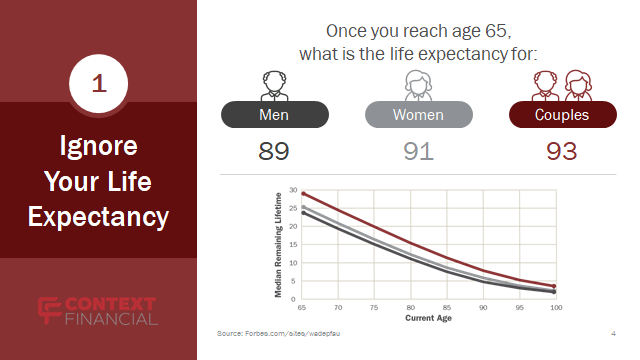Ten Ways to Run Out of Money Part 10

This one is shorter. The longer I do this job, the more I think the real value is in the questions. Once we have a good set of questions, the answers are often a Google search away. Products are a commodity. The real value is in the conversations that occur during the planning process.
Read More








